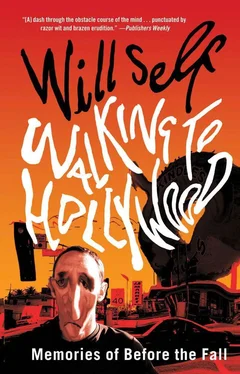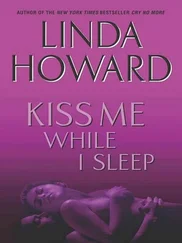Will Self - Walking to Hollywood
Здесь есть возможность читать онлайн «Will Self - Walking to Hollywood» весь текст электронной книги совершенно бесплатно (целиком полную версию без сокращений). В некоторых случаях можно слушать аудио, скачать через торрент в формате fb2 и присутствует краткое содержание. Год выпуска: 2011, Издательство: Grove/Atlantic, Inc., Жанр: Современная проза, на английском языке. Описание произведения, (предисловие) а так же отзывы посетителей доступны на портале библиотеки ЛибКат.
- Название:Walking to Hollywood
- Автор:
- Издательство:Grove/Atlantic, Inc.
- Жанр:
- Год:2011
- ISBN:нет данных
- Рейтинг книги:4 / 5. Голосов: 1
-
Избранное:Добавить в избранное
- Отзывы:
-
Ваша оценка:
- 80
- 1
- 2
- 3
- 4
- 5
Walking to Hollywood: краткое содержание, описание и аннотация
Предлагаем к чтению аннотацию, описание, краткое содержание или предисловие (зависит от того, что написал сам автор книги «Walking to Hollywood»). Если вы не нашли необходимую информацию о книге — напишите в комментариях, мы постараемся отыскать её.
Walking to Hollywood — читать онлайн бесплатно полную книгу (весь текст) целиком
Ниже представлен текст книги, разбитый по страницам. Система сохранения места последней прочитанной страницы, позволяет с удобством читать онлайн бесплатно книгу «Walking to Hollywood», без необходимости каждый раз заново искать на чём Вы остановились. Поставьте закладку, и сможете в любой момент перейти на страницу, на которой закончили чтение.
Интервал:
Закладка:
‘I’m sorry…’ he said, ‘but people are complaining.’
I told him what I was looking for and how difficult it was proving.
‘There’s a street map that Rand McNally do,’ he explained. ‘It covers the entire LA basin, if it’s not on display we might have one out back — I’ll go and look.’
While Day-Lewis was gone I tidied up the other Los Angeleses, then upon his return we spread this new one out on top of a plan chest. It would do — it showed every street, although so small I had difficulty reading the names, even with glasses; it was also a single, easily folded sheet. However, it stopped at the Hollywood Hills, so there and then I scotched the next leg of my provisional plan, which had been to leave Hollywood via the cervical ‘O’ on the Hollywood sign, sleep newborn in the sierra, then slither on, via Universal City, down into the Valley, where I might be taken on as a porn star, or a third husband.
Of course, the bookseller wasn’t only a bookseller — they seldom are. I wasn’t about to tell him the reason for my trip, although I did say something about walking and how antithetical it was to film, which gave him his opening: ‘Actually, I’m doing my doctoral thesis on slow motion—’
I stifled a sarcastic yelp: nothing could’ve been more antithetical to slow motion that the coiled power of this thespian cat-bear who leant, his coccyx stabbed by the corner of the plan chest. ‘I see,’ I said, ‘you mean Muybridge’s photographs, the variable speeds of old-fashioned hand-cranked projectors, Douglas Gordon’s 24 Hour Psycho , *that kinda thing?’
‘Well’ — his eyes were beautiful, his tone contemptuous ‘none of your examples are slow motion properly understood. Slow motion can only exist relative to full motion, and full motion itself has to be defined by a further correlate — say, a soundtrack. The Gordon piece — which I’m familiar with — is an example of extended play.’
Hal screwed me out from the corner, the other bookstore browsers free-floated among the shelves, their minds revving up to choose — then stalling. I remembered lurking beside a wall at the Hayward Gallery as Norman Bates’s knife deeeeeeeeeeeeeeeeeeeeeeeeeeeeeeeeeeeeeeeeeeeeeeeeeeeeeee eeeeeeeeeeeeeeeeeeeeeeeeeeeeeeeeeeeeeeeeeeeeeeeeeeeeeeeee eeeeeeeeeeeeeeeeeeeeeeeeeeeeeeeeeeeeeeeeeeeeeeeeeeeeeeeee eeeeeeeeeeeeeeeeeeeeeeeeeeeeeeeeeeeeeeeeeeeeeeeeeeeeeeeee eeeeeeeeeeeeeeeeeeeeeeeeeeeeeeeeeeeeeeeeeeeeeeeeeeeeeeeee eeeeeeeeeeeeeeeeeeeeeeeeeeeeeeeeeeeeeeeeeeeeeeeeeeeeeeeee eeeeeeeeeeeeeeeeeeeeeeeeeeeeeeeeeeeeeeeeeeeeeeeeeeeeeeeee eeeeeeeeeeeeeeeeeeeeeeeeeeeeeeeeeeeeeeeeeeeeeeeeeeeeeeeee eeeeeeeeeeeeeeeeeeeeeeeeeeeeeeeeeeeeeeeeeeeeeeeeeeeeeeeee eeeeeeeeeeeeeeeeeeeescended. I barely looked at it, so absorbed was I by the grain, rough against my cheek — it was an effect I knew had been achieved by pressing planks into concrete before it set. Might it be possible to date the building by counting the rings in its walls? And what of my own predicament: my mind, frozen in my body, which, cells apoptosizing, careered towards entropy? As for this punk , I paid him for his map, but — I hoped, pointedly — neglected to thank him. It was Hal I waved goodbye to.
There was one further errand to do before I could head home to pack. I left Foyles and walked up Tottenham Court Road to the Scientology Centre by Goodge Street tube. I had been dropping in at the centre for years and must have completed hundreds of their questionnaires. The so-called Standard Oxford Capacity Analysis was a simplistic personality test devised by L. Ron Hubbard himself, and I’d always scored well on it: I was unstable, depressed, anxious, sluggish, inhibited, feckless, compliant and antagonistic. The test confirmed that on those rare occasions that I found myself in groups (for the most part I was chronically withdrawn), it was impossible for me to successfully integrate. You would’ve thought that such corrosive traits, especially when combined with a sheep-like suggestibility, made me a perfect recruit — but the Scientologists stubbornly refused to let me join.
In the late 1980s I had managed to inveigle myself on to an introductory weekend course at their British headquarters, Saint Hill Manor, near East Grinstead. This cultists’ house party was everything I could’ve hoped for, from the diluted orange juice concentrate to the strip-lit repression of the single-sex dorms. I thought I was doing well: I joined in the discussions enthusiastically, and whenever we had a free moment I devoured the master’s works in an exhibitionistic fashion.
All went well until the Sunday morning, when, as a special treat we wannabes were given a test audit. The auditing procedure is the ritual that lies at the core of Dianetics; it’s nothing more than an extended lie-detector test, during which you’re wired up to a polygraph and asked a series of questions that range from the innocuous — ‘What is your favourite colour?’ — to the revealing — ‘Have you ever been sexually attracted to a member of the same sex?’ As long as you answer them truthfully you are awarded a ‘clear’, and your so-called ‘negative engrams’ are held to have been pulverized by the power of probity. In due course you ascend to the next level.
Except that I never got to the first one. It didn’t help that the auditor — his hair an extravagant bouffant — was played by the Who front man Roger Daltrey (who, following the success of Tommy , and the biopic of John McVicar in which he played the lead role, was trying to consolidate his acting career). Nor did it help that I was attracted to members of my own sex — albeit not Daltrey. The needles jerked on the meter, the pens danced on the graph paper readout, my auditor announced that I was exhibiting deep resistance. I was in a cleft stick: to admit to any homosexual inclinations would have ruled me out entirely, for the Church of Scientology was as bigoted in this regard as any fundamentalist sect.
Although sent packing from Saint Hill, I was still not to be deterred and over the coming years I went on pitching up at Tottenham Court Road, in disguises and under assumed names, armed with strategies for ‘fooling’ the Capacity Analysis. It was all to no avail: the smiling Scientologists would let me take the test again, then send me on my way, with the advice that I see a doctor, a therapist, a priest — do anything, in short, but submit myself to their own mind control.
The curious thing was that although at the outset I couldn’t have rightly said why it was that I so craved Scientology, as the years went by and my capacity to suspend disbelief in narrative was increasingly hobbled, I realized that my intuition had been sound: Hubbard’s opportunistic syncretizing of Astounding Stories, the Bhagavad Gita and The Psychopathology of Everyday Life was the perfect refuge for someone like me, who found the probable impossible, and the impossible highly likely.
Besides, the Scientologists’ bizarre belief that their human bodies were only the temporary housing for immortal alien super-beings tallied with my own experience of life, in which well-established actors played even the walk-on parts — William Holden, long dead, adjusts his fedora by the ticket machine, then strolls on . The very condition of the actor, who assumes many different forms while remaining essentially himself, was like that of these Thetans — so was it any surprise that Hollywood stars, their frail psyches sprayed with incontinent regard, were also attracted to the cult?
Hubbard, whose entire life was the front-projection of a successful sociopath, naturally wanted to direct. And ended up bushed in Southern California, presiding over his own sci-fi epics with woeful results, the silvery squeezy bottle passes through the meteorite shower in the shower stall . The perplexing thing was that during the hundred-year hegemony of the movie everything had been filmed — including films themselves. Actors had played historical personages, and those personages had also played themselves, while the actors that had played them appeared in other movies — playing themselves. This poly-dimensional cat’s cradle of references had snared plenty of people with reality-testing abilities far better than my own, and I maintained a certain amused tolerance for the way I lost myself in fugal ruminations such as this:
Читать дальшеИнтервал:
Закладка:
Похожие книги на «Walking to Hollywood»
Представляем Вашему вниманию похожие книги на «Walking to Hollywood» списком для выбора. Мы отобрали схожую по названию и смыслу литературу в надежде предоставить читателям больше вариантов отыскать новые, интересные, ещё непрочитанные произведения.
Обсуждение, отзывы о книге «Walking to Hollywood» и просто собственные мнения читателей. Оставьте ваши комментарии, напишите, что Вы думаете о произведении, его смысле или главных героях. Укажите что конкретно понравилось, а что нет, и почему Вы так считаете.












